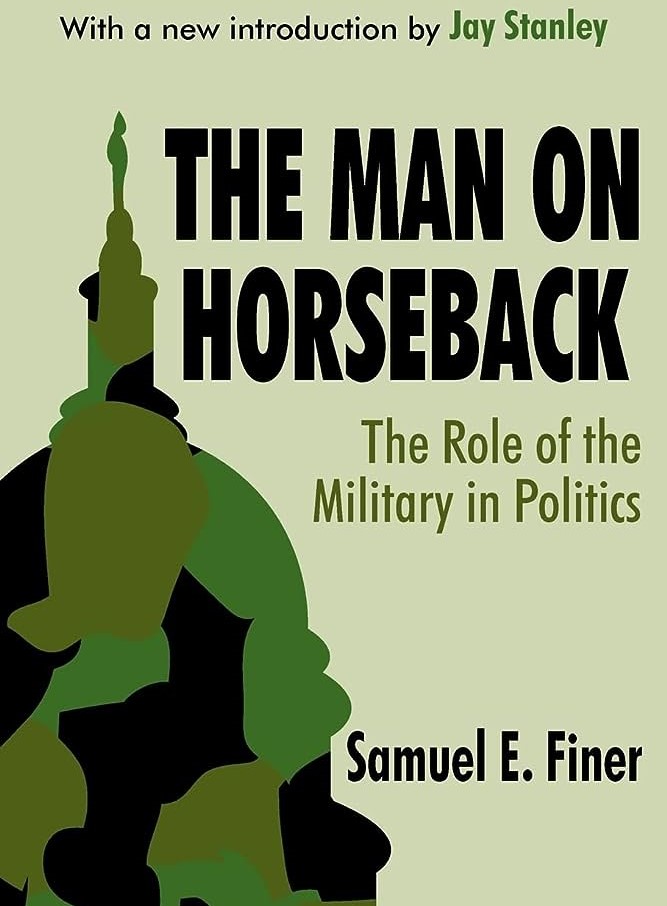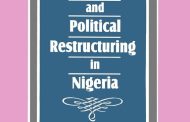Coup and coup-making is back on the agenda in Africa. Scholars of coups must track the phenomena as Lagos State University’s Prof Sylvester Odion Akhaine, a Professor of Political Science, has tried to in this piece. Though not oven fresh, it still speaks to the issue. The academic wings (abstract, indentation which are now the boldened spots, references, etc) of the piece have been removed but the substance is intact. Enjoy!
This article reflects on the threat to democracy in Africa against the backdrop of the recent spate of coups on the continent. It advances three theses to explain the nature of the threat to democracy in the continent. It argues, in the main, that the threat to democracy inheres in the nature of production relations, the character of the post-colonial elite and external interference in the affairs of the continent in ways that are counterproductive to the goals of socio-economic and political development. The article affirms that these factors constitute veritable grounds for democratic deconsolidation. It then concludes that the way out of the triple constraints lays in an introverted production orientation such that the continent can produce what it consumes in the context of an industrialisation policy; investment in human development by means of education for critical consciousness and reinvention of the developmental state for citizens empowerment. Importantly, it calls for a tri-continental solidarity involving Africa, Asia and Latin America to countervail external meddlesomeness. And nation-building elite to pursue these goals of transformation would be invaluable.
Introduction
I had my prima facie qualification interview at the Lagos State University for the position of a Senior lecturer in the Department of Political Science in October 2011. During the session, a professor whose name I cannot recall asked me a question on the prospects of military coup d‟états in Africa in the context of the expanding democratic space. In response, I said coup could take place any time and that given the anomic conditions prevalent in our country and the continent in general, coup would always happen. The Professor arrogantly laughed it off and said that given the array of international regimes including the US-led Western alliance that are adversarial to military incursion into politic my viewpoint on the possibility of coups was off the mark. I did not argue further because I knew no sooner than later, events would underscore the folly of my interviewer. First, this interview took place against the background of a coup in Guinea Conakry led by Captain Moussa Camara on December 23, 2008. However, in quick succession coup took place in Mali on March 21, 2012, Guinea Bissau April 12, 2012 and July 3, 2013 in Egypt. Indeed, since 1952 coup in Egypt, there has not been any decade in the last fifty years without military coup d‟état occurring.
According to Decalo (1976:6) By 1975 twenty of the continent‟ forty-one states (or just under 50 percent) were led by military or civil-military cliques. Several of the remaining States also had records of predatory attacks by their military forces…On statistical grounds alone the coup d‟état and military regime had become the most prevalent political phenomenon in Africa.
There were sundry justifications for military take-over of governance. The presence of ambitious and opportunistic personalities within the armed forces could lead to a coup de‟tat (Decalo, 1976:21; Gutteridge, 1975:3).
Naturally in anomic society, the armed forces being the most organized sector of society could help to restore some stability (Huntington, 1968:194). The fact that they naturally perform some economic and political functions goes a long way to influence political transformation (Janowitz, 1964).
The Free Officers Movement who overthrew King Farouk of Egypt gave the following reasons among others for the change of government: In view of what the country has suffered in the recent past, the complete vacuity prevailing in all corners as a result of your bad behavior, your toying with the constitution, and your disdain for the wants of the people, no one rests assured of life, livelihood, and honor. Egypt’s reputation among the peoples of the world has been debased as a result of your excesses in these areas to the extent that traitors and bribe-takers find protection beneath your shadow in addition to security, excessive wealth, and many extravagances at the expense of the hungry and impoverished people.1
In 1966, the coupists in Nigeria said the change of government became necessary as a result of large-scale corruption in the polity: Our enemies are the political profiteers, the swindlers, the men in high and low places that seeks bribes, and demand ten percent; those that seek to keep the country divided permanently so that they can remain in office as ministers or VIPs at least, the tribalists, the nepotists, those that make the country look big for nothing before international circle; those that have corrupted our society and put the Nigerian political calendar back by their words and deeds.2
Similarly Rawlings (1983) gave his reason for the overthrow of Liman‟s government as follows: Fellow citizens of Ghana, as you would have noticed we are not playing the national Anthem. In other words, this is not a coup. I ask for nothing less than a revolution, something that would transform the social and economic order of this country…we are asking for nothing more than to organize the country in such a way that nothing will be done from the Council, whether by God or the devil, without the consent and the authority of the people.
As First (1970:12) rightly concluded army take over is usually for army reason irrespective of its stated objectives. The point should be made, however, that there is an ever-present threat to popular democracy in Africa. I used the term popular democracy intentionally to distinguish it from liberal democracy. The former entails popular participation, inclusiveness and ownership while the latter is liberal democracy, a sort of representative democracy underlined by a certain level of disempowerment by its share emphasis on market freedom and logic. Both Dahl (1998) and Ake (1996) have acknowledged these traits in different contexts of scholarly engagement. According to Dahl (1998: 176-178), the liberal democratic canons embrace market forces and economic growth unleashes resources which may be mutually wholesome for the society. Ake (1992: 8-9)
controverts this: The conventional wisdom is that liberal democracy by operationalisng market forces will unleash competitive efficiency and higher growth rates. But this has problems. High growth rates can be expected to enhance the legitimacy and feasibility of democracy. But high growth may co-exist with the economic marginalization of substantial groups of people or, as in the case of SAPs, be achieved at their expense.
Surely, we need to identify the sources of this threat and perhaps make some useful suggestions on how to transform them. I would argue that there are three critical sources of threat to popular democracy in Africa. One is the nature of production; two, the character of the post-colonial elite and three, external meddlesomeness. I shall discuss these points seriatim.
Nature of Production in Africa
The first law of nature, jus naturale, is survival. It is for this reason that men and women are involved in production. It is on the basis of production and the appropriation of surplus therefrom that classes evolved in society. It is also for this reason that colonial conquest happened. Colonial rule subverted the development of indigenous capital and created a huge pool of labourers which cultivated cash crops / raw materials which feed the industries of the metropolitan countries which became the basis of the insertion of most African countries into the global economy as unequal partners. At independence, effort made by most African countries at industrialisation through import substitution industrialization (ISI) did quite alter the economic relations between the erstwhile colonies and the metropolitan countries. As Hirschman (1968) quite rightly noted in reference to Latin American countries, ISI was expected to take the countries which adopted the policy out of social economic and political backwardness. In Africa as in Latin America, the expected development of local industrial technology did not come about. The collapse of commodity price highly unpredictable due to the vagaries of the global economy compounded impoverishment in African countries and itself became the basis of ethnic tension and sundry subversive activities against the state. The later discovery and development of natural mineral resources such as petroleum, uranium, gold, diamond etc in the continent deepened neo-colonial linkages and fuel the venality of state elite who were soon caught up in the web of kleptocracy. Rather than grow the economy, they became the problem, as elite scuffle for access and exit from the proceeds of natural resources. Beblawi (1990:86), described the rentier state as one characterized by “a windfall wealth of unprecedented magnitude.” The rentier character of the economies spawned a huge patronage network which became the basis of corruption ravaging most African states. While alive, Mobutu Sese Seko of Zaire (now Congo DRC) appropriated the gold region Kilo-moto spanning over 32000 square miles with a reserve of 100 tons of gold (Easterly, 2002:245). General Sani Abacha described by the Spanish El Mundo as “nasty piece of work” stole several billions of dollars from the state coffers. Several years after his demise, the incumbent government in Nigeria is still negotiating the repatriation of the stolen money from foreign accounts domiciled in the West (Cocks, 2013).
Today, the same economic resources are now in the hands of private capital, both foreign and local, ala privatization. Since capital has no soul and it is unlikely to save anyone. The predictable consequence would be impoverishment of the people and its logical corollary— anomy.
The Post-colonial elite:
A careful study of the colonial era and the dynamics of decolonisation, especially after World War II, would reveal the specific nature of the post- colonial elite. They were bred and shaped in the colonial production relations and were largely compradoral in nature, that is, they helped the goal of colonial accumulation to the detriment of the wellbeing of their citizens. Nzongola (1987:14) puts poignantly in the case of the Congolese state thus, “As an extension of the metropolitan state, the colonial state was a bourgeois type of state, but not a bourgeois democratic state designed to fulfil the accumulation interest of metropolitan capital”.
Naturally there were others, the national bourgeoisies inclined to an independent sphere of accumulation free from the meddlesomeness of foreign capital. It was this class of elite that essayed at building the developmental state. The ideology that underpinned the development state was essentially “„developmentalist‟ in that it conceives its „mission‟ as that of ensuring economic development, usually interpreted to mean high rates of accumulation and industrialization” (Mkandawire, 2001:290) The compradors were the dominant elite that inherited power in a carefully mediated process by the post-world war II powers (Lawal: 1996). For this class, development was never on the agenda; and for them politics was warfare (Ake, 1998). Mbembe (1992) gives a totalizing picture of the post-colony. The postcolony was a whole complex complimented by hegemonic exertions in order to perpetuate the neo-colonial order. Although the notion of postcolony involves a historical specificity or directory in the sense of societies out of colonial rule, Mbembe (1992:3) says it has an “internal coherence‟ and that: It is a specific system of signs, a particular way of fabricating simulacra or reforming stereotypes. It is not, however, just an economy of signs in which power is mirrored and imagined self-reflectively. The post colony is characterized by a distinctive style of political improvisation, by a tendency to excess and a lack of proportion as well as by a tendency for excess and lack of proportion as well as by distinctive ways in which identities are multiplied, transformed and put into circulation. But the post colony is also made of a series of corporate institutions and political machinery which, once they are in place, constitute a distinctive regime of violence.
Indeed, the post-colonial state can be appreciated by the sundry pathologies that characterize it. Alavi (1972:61) points to its overdeveloped nature in reference to the Pakistani and Bangladeshi states. It might be said that the „superstructure‟ in the colony is therefore „over-developed‟ in relation to the „structure‟ in the colony, for its basis lies in the metropolitan structure itself, from which it is later separated at the time of independence. The colonial state is therefore equipped with a powerful bureaucratic military apparatus and mechanisms of government which enable it through its routine operations to subordinate the native social classes. The post-colonial society inherits that overdeveloped apparatus of state and its institutionalized practices through which the operations of the indigenous social classes are regulated and controlled.
Truly, the colonial successor elite could hardly cope with the structure and were locked in fight for hegemonic control of the superstructure. The post-colonial elite in the past fifty years has continued to reproduce itself in all structures of society in an incestuous manner amidst other forms of elite circulation and adaptation. By their reactionary character, they have managed only to reproduce impoverishment, instability and violence by primitive accumulation of state resources. The state has become the nodal point of violent outputs: civil wars, religion fanaticism, and armed insurgencies. This is why by some indicators; the state in Africa has failed or is failing. It should be remarked that this should not be understood from the securitization lens (Call, 2008). As Brock et al (2013: 16) have noted: …Fragile states are ineffective in terms of ability to plan and execute state-defined policies and they lack legitimacy in terms of being considered lawful and just by the population. But fragile states are also characterized by particular conditions in society. The economy is the material or physical basis of state. Fragile states lack coherent national economies which are capable of sustaining a basic level of welfare for the population and of providing resources for running an effective state.
External meddlesomeness
The externality of the continent‟s problem is unbelievably overarching. Clapham (1996) has pointed to this is his Africa and the international system. African post-colonial relations were naturally tied to its erstwhile colonial masters who in most cases intervened militarily or through the instrumentality of aids. Military intervention was justified by praetorian theory referred to in the preceding sections of this essay. In anomic society, the military could serve as the armour of order. Economic relations have not altered dependency despite stories of growth. And its extroverted essence was by no means undermined by the flexibility that the Cold War engendered. The external relations of the continent have been one of unequal relationship as the international system is governed by social Darwinism, i.e., survival of the fittest.
On February 24, 1966, the Pan Africanist Ghanaian President Kwame Nkrumah was overthrown in a coup led by police and army officers. The ousted president implicated the United States Central Intelligence Agency of complicity. Declassified documents have since confirmed what was to some extent debatable. The Intel notes of Robert W. Komer, a National Security staffer to his boss, McGeorge Bundy, President Johnson‟s special assistant for national security were quite revealing. He wrote inter alia: FYI…we may have a pro-Western coup in Ghana soon. Certain key military and police figures have been planning one for some time, and Ghana‟s deteriorating economic condition may provide the spark…the plotters are keeping us briefed…and the state department thinks we‟re more on the inside than the British (Socialist forum of Ghana, 2007:12).
In the 1960s and 1970s, the takeover of governments in Ghana and Uganda were externally inspired. In Uganda the Israelis and the British played a prominent role in the overthrow of Milton Obote‟s government by Idi Amin in 1971. The Israeli provided military assistance and a confident British Prime Minister, Edward Heath foretold the overthrow of Obote at the Commonwealth Ministers‟ Conference in Singapore (Mamdani, 1983:31).
In recent times, the crises in Libya, Mali, Egypt and Boko Haram all have external linkages as in the past (Keenan, 2012). The military in Egypt overthrew a democratically elected government of Mohammed Morsi. Washington did not only refuse to accept what happened as coup d‟état , they also looked the other way even with the slaughter of about 1000 people in one day by General Abdel Fatai al-Sisi led military junta. While responding to Press TV‟s question about his impression of the coup d‟état in Egypt, Michel Chassudovsky of the Centre for Research on Globalization, Montreal said inter alia: The press reports suggest that the protest movement is directed against the United States and that the armed forces in a certain sense are supportive of the protest movement. I think this in many regards is a smokescreen because US Defense Secretary Chuck Hagel as well as the US Chief of Staff General Martin Dempsey were in permanent liaison with the architects of the coup in the two weeks preceding the military takeover…We should be under no illusions, the Egyptian military may have differences within its ranks, but ultimately it tows the line, it takes its orders from Washington DC…Egypt is the largest recipient of US military aid after Israel. It is a strong ally and if they have taken this position of intervening and demoting a duly elected government, they have done it with the green light from the Pentagon.3
The predators of the „global jungle‟ are by far the greatest threat to freedom and survival of democracy in Africa, operationalised as the system which allows the people to control their own destiny, control the productive forces and unleash development for the general wellbeing of all in the society. It combines the egalitarianism of social democracy with the popular autonomy of participatory democracy (Sklar, 1983:14).
Overcoming the African condition
How may we overcome these threats that I have identified? Altering the patterns of production relationship with the external world in ways that are independent (not in autarkical sense) is required. African must produce what they consume; they must industrialise through a conscious linkage of the agriculture sector to manufacturing. This call for distancing from the overreliance on the extractive industry, especially hydrocarbon exploitation whose future I believe is not so promising for the producers in the continent, not only because it is finite but because of foreseeable glut (Akhaine, 2010). Nation-building elite must be cultivated and a deconstruction of the colonial mindset is required to re-orient the elite in the continent towards a re-invention of the development state. de Rivero (2001: 82) described the global jungle as place where “the undeveloped countries that failed to modernize technologically are not only unfit species. The individuals and groups that are less skilled in grasping and using new technologies are too.” That global jungle is also governed by an undemocratic oligarchy that has severally and structurally adjusted the continent in ways that inspired Simon‟s (1995) review title: “The medicine man cometh: diagnoses and prescriptions for Africa‟s ills”. To chart that jungle, human development is invaluable and this can come about through massive investment in education.
Beyond rote learning, it must be oriented towards critical consciousness (Freire, 2007).
Conclusion
I have argued in the foregoing the nature of the threat to democracy in Africa. Three key factors, namely, the character of production relations, the nature of its post-colonial elite and the dynamics of the external environment are implicated. Freeing the continent from these triple constraints demands serious conscientisation or citizen education as well as solidarity of the oppressed countries in Africa, Asia and Latin America. There is strength in collective action. It is really time to say in the words of Danaher (1994) fifty years is enough.


























